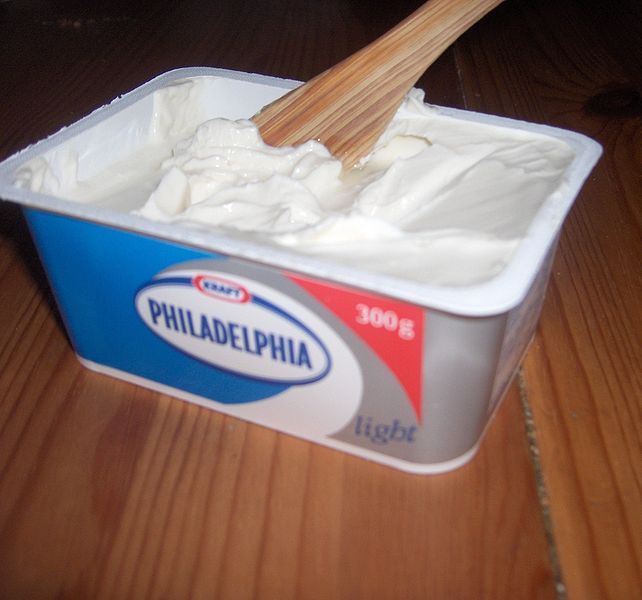OK, it’s corny, but I had to smile last week, spreading Philadelphia brand cream cheese on a bagel while visiting Philadelphia (a common occurrence for residents of the City of Brotherly Love, no doubt, but not for a guy from Santa Monica). But what really caught my eye was the label that said the product was made with renewable energy.
The Kraft “Philly” cream cheese website (www.creamcheese.com — what else?!) explains that the company installed anaerobic digesters to convert waste from cheese making (whey) into methane gas, replacing about a third of the natural gas that would have been used (enough to heat more than a thousand average homes for a year). And by actively looking for ways to be environmentally and economically sustainable, Kraft discovered more benefits than expected — the whey had been spread on land to decompose over time, generating air and water pollution, a practice that is now no longer necessary, because waste is instead being converted into wealth. The company also changed factory lighting to more efficient models, saving a million kilowatt hours annually — enough to light over 2,000 homes for a year.
The lesson is that “sustainability” isn’t just a concept for environmentalists, but a strategy for survival, especially in a bad economy. Consider an old-time maker of screws and bolts as further evidence.
Cardinal Fasteners in Bedford Heights, Ohio has manufactured bolts for the Golden Gate Bridge, the Statue of Liberty, and many of the world’s roller coasters, but faced tough times from foreign competition and a bad economy, like many other American manufacturers. Their sales have been boosted in the past three years however, by selling fasteners to U.S. manufacturers of wind turbines. Instead of laying off workers, Cardinal is adding them and, by the end of this year, expects up to 60 percent of its revenue to be from supplying the wind turbine industry.
And because Cardinal buys American steel, that increases production at one end of the supply chain, while the rapidly growing number of fasteners sold illustrates the growth in the wind manufacturing sector at the other end. Nor is wind the only low carbon industry that is adding manufacturing capacity and jobs in the midst of a recession. In 2008, First Solar had revenues of just over a $1 billion. A year later, they soared to over $2 billion. Today, the company employs nearly 5,000 workers in Ohio, New York, California, Nevada, New Mexico, and elsewhere.
All of these industries wouldn’t be growing today if companies like Kraft weren’t looking for ways to be more sustainable, lower their carbon emissions, take control of energy supplies, and cut costs. This trend also makes American companies more efficient and therefore more competitive in the global marketplace, which helps boost demand for that Made-in-the-USA label.
Comedian WC Fields disparaged Philadelphia throughout his life, but famously asked that his tombstone read “All things considered, I’d rather be in Philadelphia.” My cream cheese experience in the city reminds me that, like Fields and the growth of the sustainability movement, it’s never too late to challenge old beliefs and discover something new.



